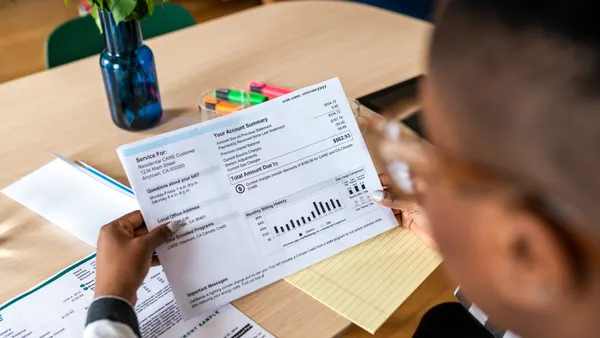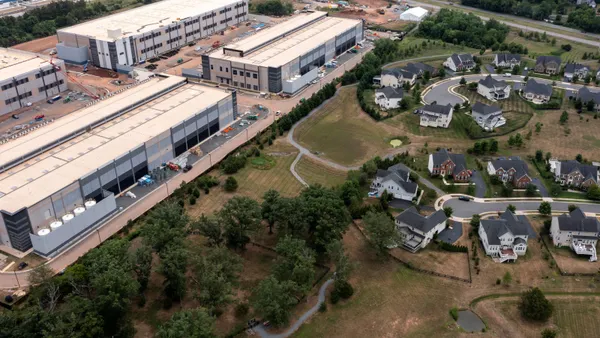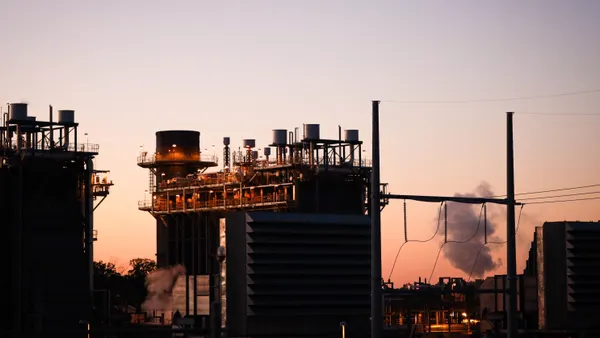Dive Brief:
- Virginia Gov. Ralph Northam (D) has lent support to a fast-moving utility reform bill in Virginia that could remove a rate freeze set in 2015 for Dominion Energy.
- SB 966 would reinstate regulatory reviews for utility rates every three years and direct Dominion to spend billions on energy efficiency, low-income assistance and renewable energy. The bill passed a Senate committee Monday and could be considered by the full body this week.
- Critics, including Attorney General Mark Herring (D), say the bill would allow utilities to continue overcharging customers and could lead them to pay twice for some renewable energy projects.
Dive Insight:
Put into law in 2015, Virginia's rate freeze for Dominion and Appalachian Power — the two electricity providers in the state — was meant to help the companies comply with the Obama administration's Clean Power Plan, a federal carbon regulation.
But now, the Trump administration has moved to scale back that carbon rule, pushing many Virginia regulators to call for an end to the rate freeze. Last year, the law allowed Dominion to charge customers $425 million more than it would have without the freeze, according to the Richmond Times-Dispatch.
An earlier version of the Dominion-backed bill would have further shielded utilities from rate review, but the State Corporation Commission (SCC) weighed in last week to say it would lead to more overcharging. Gov. Northam then stepped in to renegotiate the bill.
Under the current version, Dominion would refund $200 million to customers, as opposed to $133 million originally proposed, and would also pass along savings from the recent federal corporate tax overhaul.
The bill would reinstate SCC rate reviews every three years, instead of every two, as was the case before the freeze.
Critics take issue with details of that provision. Under the current bill, if utilities overcharged ratepayers during that three-year period, they could use that money to invest in renewables, efficiency or grid upgrades.
Attorney General Herring is concerned that would force ratepayers to pay twice for the investments, since the overcharged amount would be added back into the utility rate base. Backers of the proposal, however, say the legislation would prevent such "double dipping," The Washington Post reports.
The legislation would require utilities to invest more than $1 billion in efficiency over the next decade and authorize the SCC to deem up to 5 GW of solar power in the public interest. Those and other clean energy provisions won the support of major environmental groups, but consumer advocates remain skeptical.
Local news outlets report that a vote in the full Senate is expected this week, after which the bill would have to clear the Virginia House of Delegates. A House committee passed the bill last week.













